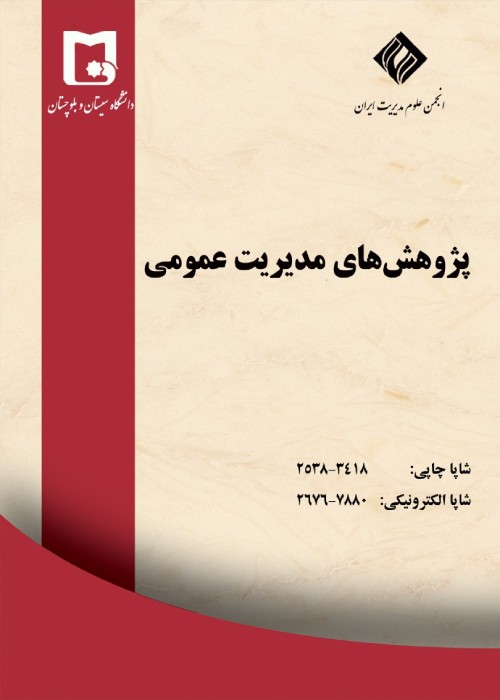Designing and testing a model of individual- contextual antecedents of proactive behaviors with mediating role of cognitive-motivational states in Automotive parts industry (Khorasan Razavi)
New features of today's organizations have led to the emergence of a new organizational structure called proactive behavior and to be considered as one of the organizational behavior. Proactive behavior can be a high-impact concept that plays an important role in enhancing individual, team, and organizational effectiveness in managing and operating an economic of organization. We provide an integrative search on presentation and testing a model of individual(Proactive personality) contextual antecedents(Initiative Climate, job autonomy, Transformational Leadership) of proactive behaviors with mediating role of cognitive-motivational states in Automotive parts industry in Khorasan Razavi province.IntroductionOne of the most significant ways of maintaining industry and overcoming critical situations, technological sanctions and intense competition with foreign competitors is to concentrate on workforce, which is a valuable asset of every organization. Therefore, development, reinforcement and modification of behavior can result continuous and effective changes in industries. The emergence of proactive behavior in the organization can be the basis for increasing the productivity of human resources in the industry. Therefore, identifying this behavior and analyzing the causes of its occurrence, in order to strengthen and create this behavior in organizations, can lead to fundamental changes in the industries of the country. In addition, it can help with accelerating organizational changes, reducing costs, being aligned with customer needs, increasing profitability, and ultimately improving industry performance. Consequently, the purpose of this study is to investigate the antecedents and mediating factors of proactive behavior and its impact on the occurrence of such behavior in the automotive parts industry of Khorasan Razavi Province.Case studyThe statistical population of this study is all personnel of the in Automotive parts industry in Khorasan Razavi. The total number of employees was 5268 and 392 were selected by simple stratified sampling.Theoretical frameworkThe model we test proposes that individual differences and work environment variables affect proactive cognitive-motivational states, which, in turn, lead to proactive behavior. This model concurs with Frese and Fay(2001), who, drawing on Kanfer(1992), proposed individual and contextual variables as distal causes of proactive behavior that have an effect via more proximal variables such as role breadth self-efficacy. The hypothesized role of such cognitive-motivational states is consistent with social– cognitive theory, which proposes that humans are reflective, self-regulating agents who are not only products but also producers of their environment (Bandura, 1982). It is also consistent with job design theory, which proposes that job characteristics affect outcomes via critical psychological states(Hackman & Oldham, 1976). In a contrasting theoretical model of proactive behavior, Crant(2000) proposed that motivational states and contextual factors affect proactive behaviors directly.Methodology and MethodsThis study is an applied research in terms of its objective and is of survey type in terms of its data collection and method.the required information was collected using questionnaires. To test the research hypotheses, structural equation modeling has been used.Discussion and ResultsIn this paper, 13 main hypotheses were investigated, and confirmed. The results are in line with many other studies conducted in different fields. The results indicate that individual and contextual antecedents independently and through motivational-cognitive states, cause the emergence of proactive behaviorConclusionBased on the outcomes, first of all, active managers in this field are recommended to identify the factors affecting the creation of initiative climate, and make arrangements to expand transformational leadership. Moreover, effective human resource units in training and employment are advised to plan on improving staff competencies and using valid tests to recognize people with proactive personality.
- حق عضویت دریافتی صرف حمایت از نشریات عضو و نگهداری، تکمیل و توسعه مگیران میشود.
- پرداخت حق اشتراک و دانلود مقالات اجازه بازنشر آن در سایر رسانههای چاپی و دیجیتال را به کاربر نمیدهد.


